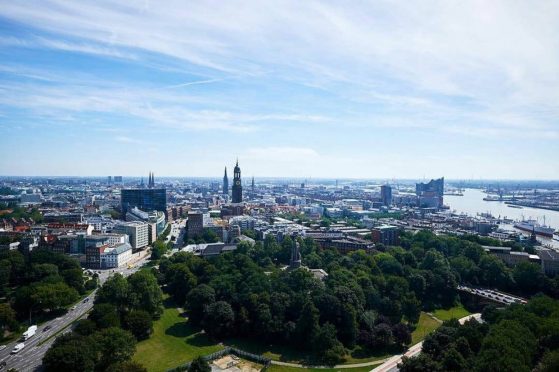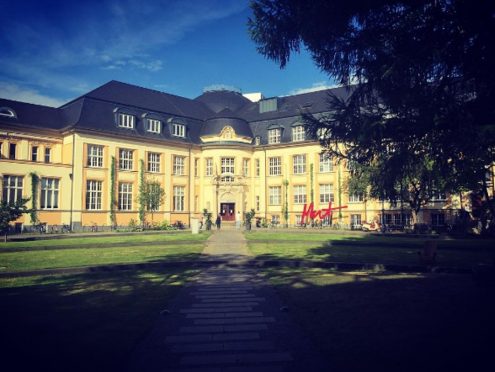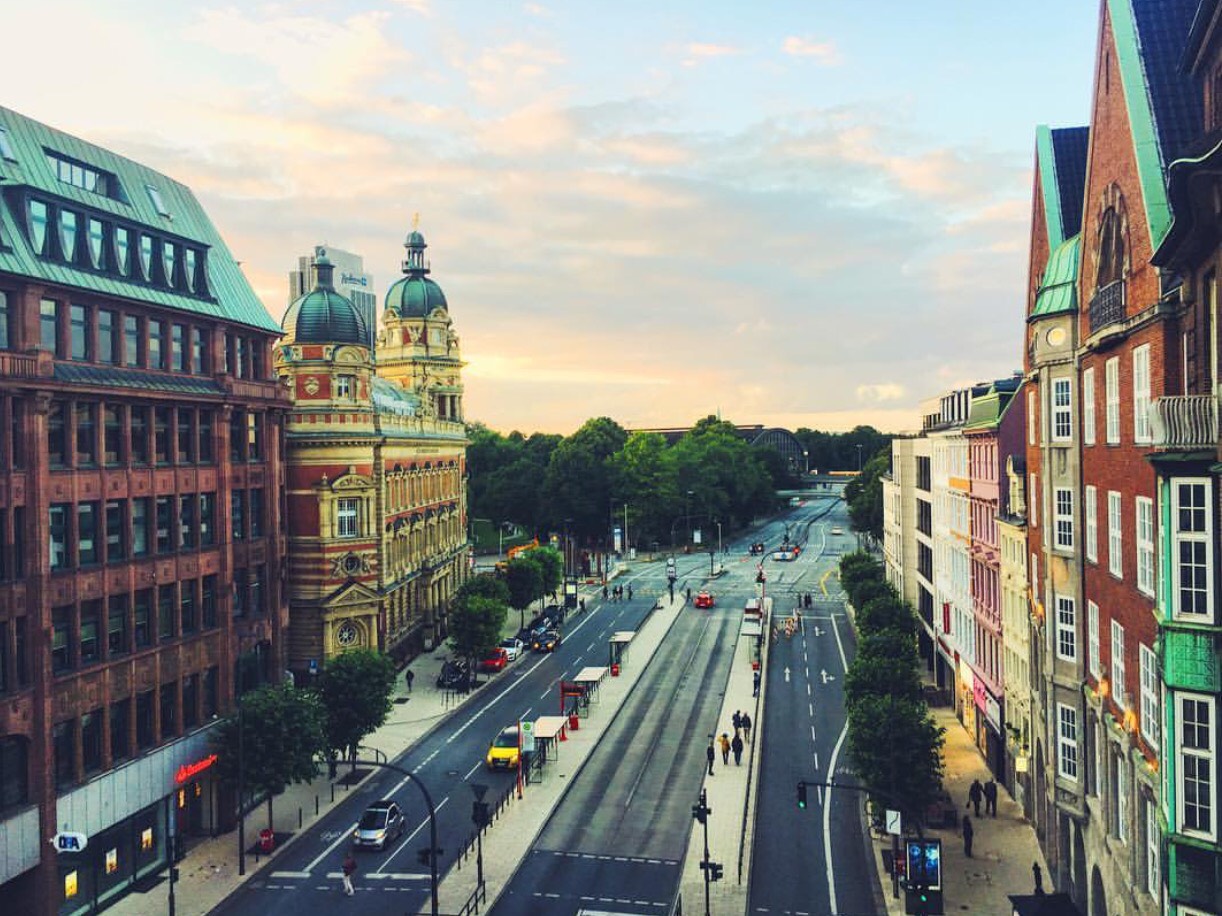Pre-departure:
As an avid traveller, I assumed that the pre-departure preparations would run smoothly. While I did not experience any major hick-ups, it is important to remember that preparation for a holiday is different to that of preparation for living abroad. The most important such difference is the visa application procedure.
The German student visa takes up to three months until approval from the date of application (and the waiting period for an appointment do at times pile up to five weeks). Submitting a police clearance certificate is a prerequisite for a German visa application and this process take some months. All in all, the time piles up and it is important to start with the application procedure as soon as possible. Visit the embassy website and check the requirements for a student visa or residency permit well in advance.
German visas require an applicant to open a blocked account with Deutsche Bank, with 670 EUR per month paid into the account by the time you visit the embassy for your interview. In other words, a four month exchange requires 2680 EUR to be paid into the account before you apply. This is a lot of money which not everyone is capable of securing in advance. Make sure that your financial planning and budget take this into account.
It is sometimes difficult to find accommodation in Germany as student dorms are limited. Most students share a private flat with local students. Start looking for accommodation early (finding a place takes time), as a signed lease is another requirement for the visa application. Join Facebook housing groups of the campus or the city. An excellent German site is www.wg-gesucht.de. The majority of rooms or flats are advertised here with new entries appearing on a daily basis. This also means that you should check back daily!
Exchange to Germany often takes place over more than one season. Packing for both summer and winter can be challenging and remember that the German summers are cooler than South African summers, and winters are freezing. Make sure to check the climate of your specific region, or talk to a local student. Remember to have comfortable shoes (Germans walk all over the city) for both summer and winter. Should you not have appropriate winter clothing, don’t rule out buying clothes once in Germany. Their clothes, especially the winter ranges, offer a much greater variety than here. You are also bound to run into a sale sometime during your stay.
If you are visiting friends during your exchange, consider buying some local South African products to take as gifts. Germans love our wine, Amarula, and Mrs Ball’s chutney. For my own use, I took over some Ina Paarman spices as German supermarkets do not have similar mixes.
The international offices at both Stellenbosch University and the host university are there to help you. I can ensure you that they would be happy to assist in any manner possible – whether it is answering a question or couriering documents abroad. Do not forget that they are there for you.
During your stay:

An exchange programme can genuinely be a highlight of the first few decades of your life, but the experience highly depends on what you make of it.
Make friends with the other exchange students as they are the ones who you will be seeing most while on campus. Even if you’re not social, push yourself out of your comfort bubble and attend the orientation programme and other social events which may be organised during the first few weeks. The friendships of the exchange are usually formed very early, so be sure to be available and receptive (both in schedule and emotionally) during this time.

While I do think it is important to make friends with some of the exchange students, I cannot stress enough how important it is to also make friends outside of the exchange programme. A truly successful exchange programme is the result of someone who truly submerged him/herself in the local culture. Do this by organising a language tandem with a local student, join a student society or music group, or invite a colleague out for a drink (if you also end up working).
Many aspects of the local culture can be strange or different from what you are used to, but may nevertheless over time prove to be wonderful. In terms of food and drinks, always try to have something new. You can always again have your usual food once you are back home. Try local drinks, join local friends and their families for meals at home, and partake in local traditions.

Studying in Europe allows for some cheap travel opportunities to other European countries, as intra-continental flights and train rides may (but are not always) inexpensive. In addition to all the usual travel suspects such as France or Italy, do not forget about beautiful Eastern Europe or a country like Ireland. Where ever you go, do visit the beautiful cities, but try to incorporate the countryside as well.
While travelling around is a lot of fun, it doesn’t make sense to travel all around Europe, but not taking enough time to get to know your own city, region or country. Make sure to spend a few weekends in your local city, take a train to a neighbouring city or town, or another city in your host country.

The academic programme at Bucerius Law School is of a high academic standard with top professors from all over the world being flown in to teach both local and international students. Classes are much smaller, ranging in size from 10 to 40 students. This means that your professor expects classes to be interactive, which is of course only possible if you prepare adequately.
Bucerius Law School offers a wide range of cultural activities and societies to join and I can wholeheartedly recommend doing so in order to get the most from the exchange. German language courses are on offer and many students start with the classes, but later drop out. I would again strongly recommend doing such a course (levels range from beginner to legal German) and enduring until the very end. You are likely to never again have the opportunity to learn a new language while being in a country where everyone around you speaks it all the time. Seize the opportunity!
Students from other countries are, in my opinion, better qualified as internships are often a compulsory component of university studies, or they gain such experience during vacation work. This does mean that should a South African law student want to work abroad, he or she must have the adequate qualifications and experience as such a German student. If you can, I therefore strongly advise you to do an internship while in Germany (the Bucerius careers office is more than willing to organise something for you). Not only does it help tremendously to improve your CV, but it gives you the opportunity to build networks which may be very beneficial for the future.
Lastly, use the opportunity while there to find out about career opportunities abroad and how to get there. Find out about further possible study opportunities and what it would mean to you.
Alas, the exchange should be more than just four months of pleasure – it should be a step in building your future career and life. An exchange programme can change your path forward, but that is solely in your hands.
Returning home to South Africa:
Many exchange students who return home go back to Stellenbosch University to finish their studies. As a law student, however, your exchange takes place at the end of your studies. I therefore said goodbye to my home, friends, and university prior to my departure. Upon my return I moved to new city, a new career, and I had to make new friends. My return planning therefore in certain aspects required more work than my pre-departure planning!
Remember that regardless of how wonderful your time abroad may be, there if a life after exchange and it does require proper planning.
If you are returning home to Stellenbosch University, remember to check for deadlines such a registration and finding accommodation. If you are returning to South Africa, but moving to a new city, remember to spend some time on exchange sorting out all admin, including finding a new place to stay, possibly a change in bank account, and applying for medical aid.
As an exchange student you are often warned of the culture shock you may experience while on exchange. This is true, however, I do believe that we underestimate the possible culture shock of returning. Germany became my home in every aspect – I studied there, I worked there, I had German colleagues and friends. Returning to South Africa was much more difficult than I expected.
Similarly, living in a first world country with proper infrastructure, services and public transport, may cause a person to become rather despondent when returning to South Africa. I have met many people who returned to South Africa and became very negative about the country. While South Africa does lack a lot of the abovementioned, our country has a lot to offer which no other country in the world can possibly do. My advice is therefore to focus on the positive aspects and rather work to improve what can be improved. Our country is not all doom and gloom, and it is very important to remember that.
My exchange programme has fundamentally changed the way I hope my future works out. For one, I am now aware of the great number of international opportunities which exist – both in terms of my career and studying. I do plan on going back to Germany at some stage to both complete a Master’s degree, and possibly build my career abroad.
My time in Germany has allowed me to build a network incomparable to what I have had before. A network, however, requires you to maintain it. Therefore, keep in touch with your international friends, add colleagues on LinkedIn, send a postcard to someone special, and try to see them again when to opportunity so arises.

